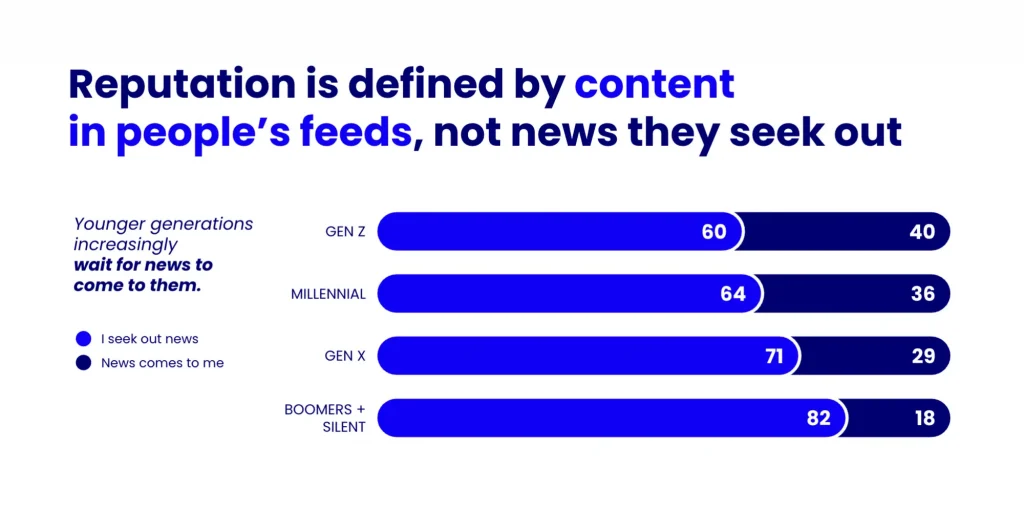Veränderte Reputationsprioritäten für Schweizer Unternehmen
June 4, 2025
Corporate reputation resilience is a changing game, with misinformation and disinformation combining to create new risks for businesses, and a fragmented media environment making it more difficult than ever to reach and engage audiences.
Combined with the geopolitical disruption of the past few months, understanding what to do to protect and promote reputation has become more challenging than it has been for decades. Our latest research shows that proactive positioning and authentic communication can make organisations more resilient, while remaining silent can make them more vulnerable.
These were the central points of a webinar discussion for Swiss communications professionals hosted by BPI Group’s President Ben LaBolt yesterday. Ben recently rejoined our group having spent time working in the White House.
In what has fast become a multi-polar world, economic anxiety is causing incumbent political parties to lose elections worldwide as populism grows and media fragmentation continues, he said. The rise of video as a medium – with little fact-checking and a “layer of emotional monologue” – was a particularly strong factor.
Conventional media is less effective for reaching younger audiences and competition for attention across newer platforms is rising. Podcasts, streaming audio and TikTok are key reasons why 40% of Gen Z individuals now wait for news to come into their social media feeds rather than tuning in to conventional news platforms.

The webinar also explored the main conclusions from BPI Group’s Resilience Index, which showed that companies can develop better protection against reputation vulnerabilities and that such firms can become trusted ‘stewards’ of positive change. The index, developed through nearly 17,000 interviews across Europe and the US, identifies factors that contribute to brand resilience, the types of misinformation that cause the most harm and strategies for protecting brand reputation.
Diese Reputationsschwachstellen und die Bemühungen, sich gegen falsche Darstellungen zu schützen, werden immer von Branche zu Branche und von Land zu Land variieren, und unabhängig davon, ob das Unternehmen in den USA oder in Europa ansässig ist. Aber es gibt auch viele Gemeinsamkeiten bei der Frage, wie die Widerstandsfähigkeit am besten aufgebaut und aufrechterhalten werden kann: eine kampagnenorientierte Denkweise, das Verständnis und die Nutzung neuer und einflussreicher Inhalte und Kanäle sowie eine bessere Nutzung der Datenanalyse, um eine wirksame Kommunikation zu testen, zu entwickeln und zu bewerten. Darüber hinaus sollten Unternehmen, die ihre Widerstandsfähigkeit erhöhen wollen, den Aufbau einer Markenplattform in Betracht ziehen, die zeigt, dass sie ein vertrauenswürdiger Verwalter des positiven Wandels sind.